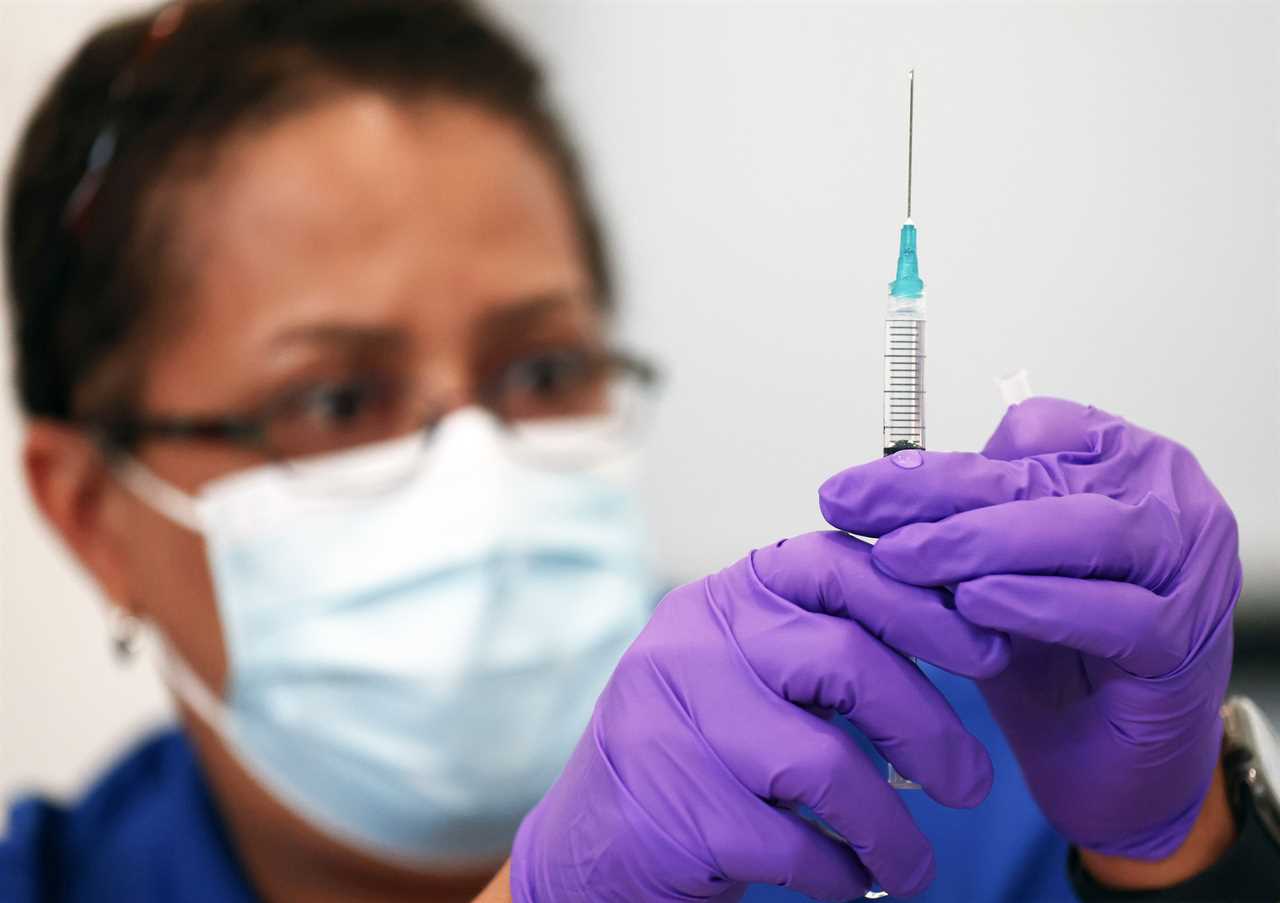
The Biden administration’s fall campaign for updated Covid-19 boosters is ramping up ahead of the flu season, with pharmacies adding appointments for the newly authorized shots that officials believe will offer greater protection against currently circulating variants.
CDC Director Rochelle Walensky made the case to reporters on Tuesday that Americans — especially those who haven’t received a shot in more than a year — should get an updated booster to fortify their immune system ahead of a potential surge of the virus during the colder months.
The latest efforts come as CDC-reviewed modeling projections show that if Americans take the updated Covid shots at the same rate as the annual flu shot, as many as 9,000 lives could be spared and 100,000 hospitalizations could be avoided. And the White House this week said that future national strategies to bolster Covid-19 immunity will fall in line with the annual flu campaign.
“Winter is not that far away,” President Joe Biden said Tuesday in a statement. “The past two years, we have seen Covid-19 cases and deaths soar. It does not have to be that way this year. If you are 12 and older, go get your new Covid-19 shot this fall."
Who can get a shot?
The FDA authorized emergency use of Pfizer-BioNTech’s bivalent booster shots last Wednesday for anyone 12 and over and Moderna’s bivalent booster for adults, as long as it has been at least two months since their last shot. The CDC’s independent vaccine advisory committee subsequently recommended the shots the following day, a move quickly formalized by Walensky.
People who have not received a Covid-19 shot are not eligible to receive a booster until they’ve completed the original vaccine regimen. The White House said Covid-19 shots would be reformulated for annual booster campaigns. This year, the shot includes the original Covid strain plus the Omicron BA.4 and BA.5 subvariants, which are the most commonly circulating variants in the population.
What’s new about this version of the Covid-19 vaccine?
The FDA and the CDC cleared the new boosters based on data available from studies on mice, and ones on humans using another reformulated booster that targeted a previously dominant strain.
There’s no clinical trial data backing the specific bivalent boosters, but the agencies believe that the evidence from the studies companies had time to conduct is sufficient, given the ongoing risk of the evolving virus. The process is similar to the way health authorities develop and update the annual flu shot.
When and where can you get a shot?
Major retail pharmacies, like CVS and Walgreens, began offering appointments for the new bivalent shots on Friday. But individual pharmacies may not offer the new bivalent boosters immediately.
“The government’s distribution of the updated boosters is underway and individual CVS Pharmacy locations are receiving the bivalent COVID-19 boosters on a rolling basis over the next few days and weeks,” CVS said in a statement last week.
HHS Secretary Xavier Becerra told reporters on Tuesday that the Biden administration is especially focused on making sure vaccines are available for high-risk Americans, specifically those 50 years and older.
“By the end of this week, over 90 percent of Americans will live within five miles of these new updated vaccines,” Becerra said. “We expect appointments to be widely available within the next week or so.”
What could make these plans change?
Biden administration officials stressed that the recently unveiled strategy is based on current data and scientists’ understanding of the virus, which could change.
"The wild card of a way-out, out-of-left-field variant coming, if that happens, all bets are off and we change," said Fauci.
One other wrinkle: Federal funds to buy and distribute Covid-19 vaccines may run out as soon as January, Dawn O’Connell, assistant secretary for Preparedness and Response, said in August.
“We have been grateful for the bipartisan Congressional support of our response efforts, but it has been more than 530 days since we last received new funding for COVID-19 and without additional funds it will be difficult to continue procuring and distributing these countermeasures,” she wrote in a blog post.
However, plans are underway for the private sector to pick up the slack when government funding runs out. Most Americans with health insurance will likely have the cost of Covid-19 vaccines covered by their plans, but public health experts warn access for the uninsured likely will suffer.
----------------------------------------
By: David Lim and Katherine Ellen Foley
Title: 4 things to know about the bivalent booster campaign rollout
Sourced From: www.politico.com/news/2022/09/08/bivalent-booster-cdc-covid-00055346
Published Date: Thu, 08 Sep 2022 04:00:00 EST






